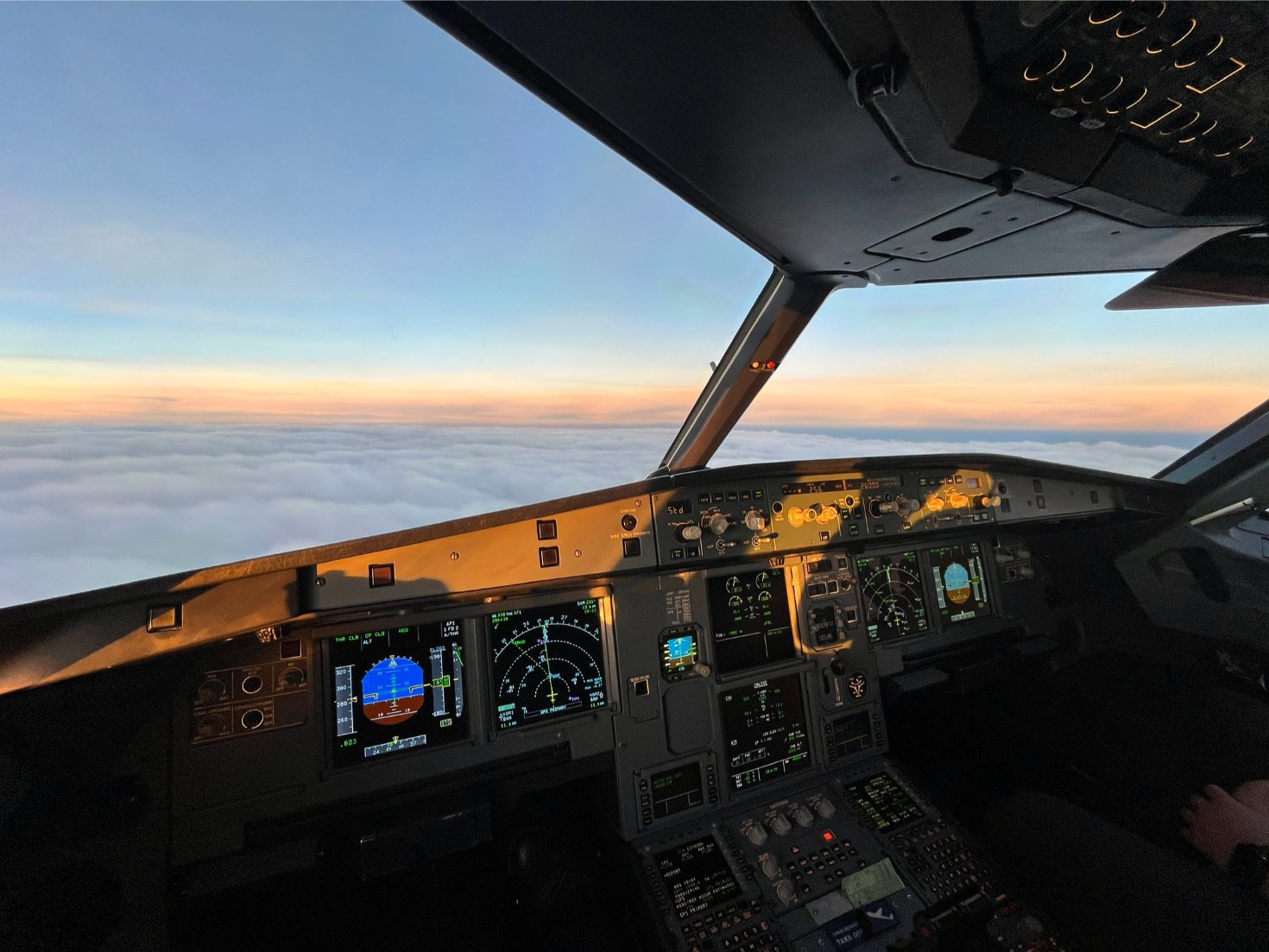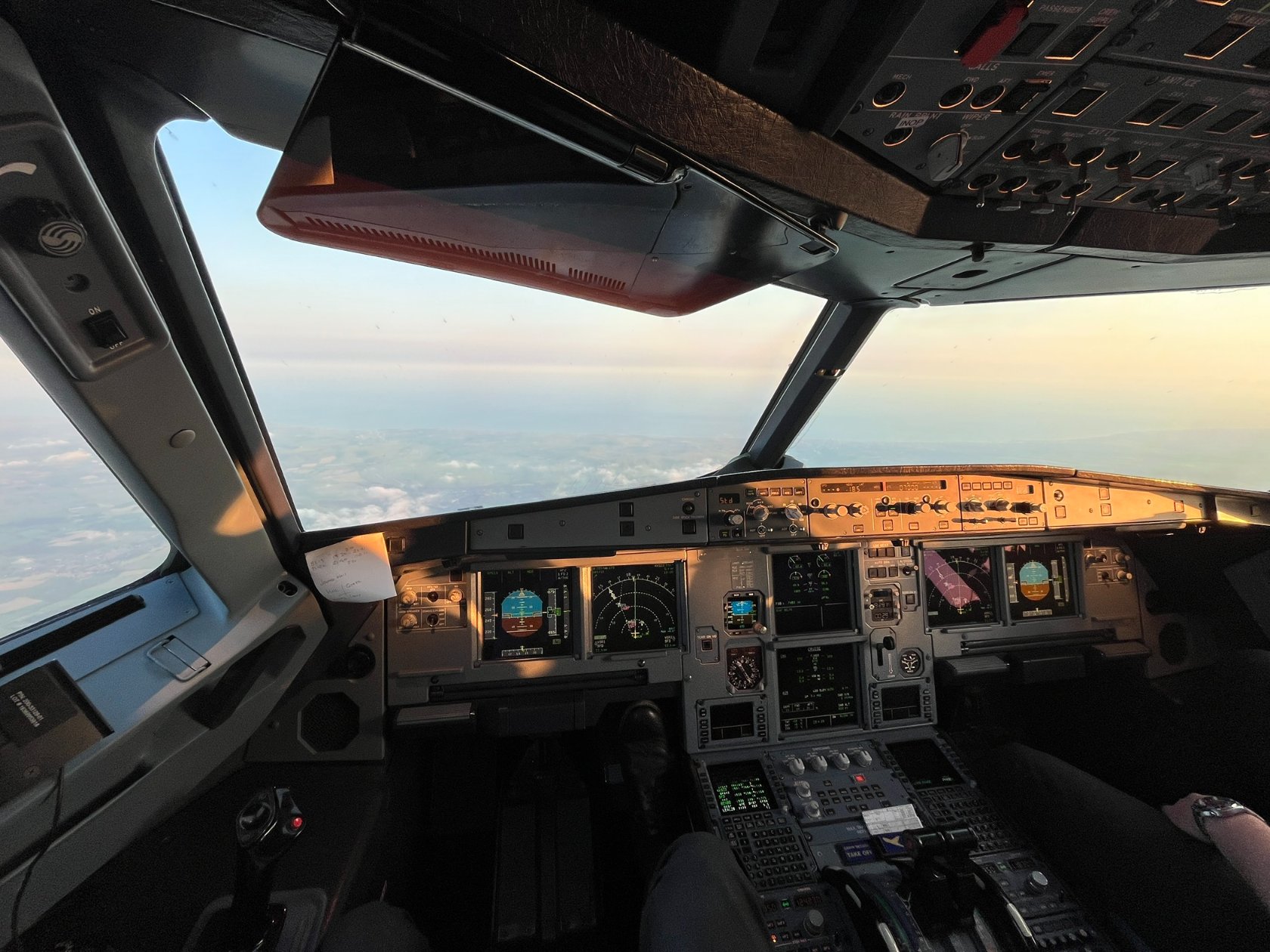
Airport Closure & Failure Management
A day filled with decisions, delays and expectation management. Another insight into what the daily life of an airline captain really consists of…

No, you absolutely don’t need a degree to become a commercial airline pilot in 2023. Some pilots opt to gain a college degree, university degree or bachelor’s degree before flying, but this isn’t a current requirement for any major airlines. Infact, spending time on a 4-year degree could potentially hinder your career path by slowing your time to Command. I’m sat in the Captains seat of a short haul jet at a major airline before my 30th birthday, which wouldn’t have been possible if I’d studied for a degree.
Major airlines, regional airlines and flight schools do however have education requirements. They vary slightly country to country and airline to airline, and I’ll break them down below as simply as possible;
All major airlines will either recruit their pilots directly from flight schools, or from regional airlines, so in terms of educational requirements, as long as you have the requirements to get into one of the flight training schools, and the aptitude to successfully complete the training, you’ll get your commercial pilot license and soon after be able to apply to airlines.
Once you’ve finished flight school and qualified, landing a job as a first officer will be based from flying experience rather than educational experience. Whilst some major airlines may have educational requirements that are more stringent than that of the flight schools, this will only be a minor difference & currently none necessitating a four-year degree.
In the United States, regional airlines will only pick you up once you’ve got 1500 hours of flight time & ATP (Airline Transport Pilot Certificate). Major airlines will then only pick you up once you have closer to 5000 hours of flight time (as of writing this – this may vary greatly with the current fluctuating job market and pilot shortage).
In the UK – The career path for flight crew is slightly different; Major airlines will pick you up straight out of flight school!
It’s worth noting that the aviation industry can change their requirements depending on the market demand. After 9/11, pilot jobs were sparse so major airlines could be extremely picky. In this current climate with a huge pilot shortage, the requirements are quite basic so it’s a great time to become a pilot if you don’t have a degree.
Pilot training & the aviation industry has changed a lot over the last decade and it’s important for prospective pilots to understand how the career path now works. Back in the day, the doors of major airlines were only open if you were a military pilot, or had a 4-year degree such as a bachelor’s degree, or further college education.
Nowadays, aspiring pilots are able to join large flight training programs with no flight experience, and come out the other side as a Commercial Airline Pilot. The biggest flight training schools will offer accelerated courses whereby you can gain your private pilot license and your commercial pilot certificate and be in a place where you can apply to commercial airlines within 1-2 years. In the UK, you’d come out with a frozen Airline Transport Pilot Certificate or Multi Pilots License and you may be able to go straight to the major airlines (depending on current market demand and pilot shortage).
In the US, you’ll have your Commercial Pilot License but will still need to build your 1500 hours of flight time before applying to become a regional airline pilot. (See more here about the 1500 hours rule)
In terms of entry requirements to the big flight schools, they are generally all quite similar with some minor variations.
Below is an example from one of the UK’s leading flight schools L3 Harris
As you can see, you need 5 GCSE’s of certain grades. Some schools will allow the education equivalent of what they’re asking for, so will consider a high school diploma and other alternative similar levels of education.
Here is the educational requirement from ATP flight school in the United States. It’s essentially the equivalent of our GCSE’s but in the form of High School GPA;
The American Airlines Cadet Scheme’s only current educational requirement is that you have a high school diploma.
Here is an example of one of the UK’s major airlines, British Airways’ entry requirement to join as a first officer on their fully funded scheme (More info on fully funded schemes here);
As you can see, not much difference, and certainly no bachelor’s degree in there!
Another important thing to consider is your medical health. All flight training programs and airlines will require you to be able to gain a medical certificate. This will be granted by the FAA – US (Federal Aviation Administration), CAA – UK (Civil Aviation Authority) or EASA – EU (European Union Aviation Safety Agency). This is just as important as the education requirements and you’ll need to be able to maintain your medicate certificate throughout your career. There are certain medical conditions that may preclude you from becoming a professional pilot. Check on the relevant websites above for more information.
On the medical front; if you were unable to gain the required medical certificate for a commercial pilot license, you should definitely still consider other jobs within the aviation industry. An Air Traffic Controller requires a slightly less stringent medical test than pilots, with more medical conditions acceptable. In the UK right now, there is an Air Traffic Controller shortage so companies are actively paying for the training. You could also look into other roles such as aircraft maintenance or flight engineers.
Whilst it’s definitely not a requirement to get your commercial pilot certificate, a degree could bring certain benefits if you’re looking to be a commercial airline pilot with the major airlines;
It could help you stand out from other candidates. Some major airlines may look more favourably to someone who has a degree when job competition is high, especially if it’s an aviation-related degree, such as a bachelor’s degree in aeronautical science, or aerospace engineering. A degree can also display your commitment and discipline, and aviation-related degrees can improve your technical knowledge in key areas related to the role, like physics and aerodynamics and aircraft systems. College can also help you develop transferable skills, such as communication and teamwork.
It can act as a safety net. If you’re unfortunate enough to ever lose your medical certificate, there is a downturn in the airline industry job wise, or you simply decide on another career….any formal degree gives you a good leg up and keeps your career options open. You could chose to stay in the aviation industry and move into aircraft maintenance or become a flight engineer. There would be a college degree requirement here and a degree in a subject such as aerospace engineering would give you a step up.
Some flight schools offer aviation degree programs whereby you earn your degree alongside gaining your ATPL. This is a great way of building your safety net whilst pursuing the career path you want, and ensuring you don’t lose any time in the process! It does add even more cost onto what’s already quite an expensive training bill for pilot training.
Cost & time play a big factor here. Life is short and we live it once. The average debt for a 4-year bachelor’s degree is $34,700. In the UK the average student debt sits at £45,000. Add that to the average cost of pilot training school of $100,000 (£100,000 in the UK also) and you end up with substantial debt before you’ve ever set foot in an airliner.
You also need to factor in opportunity cost here. In the 4 years it takes to earn that degree, you could have climbed up the ranks in the airlines to a Senior First Officer and be on the horizon for Command, especially as a Regional Airline Pilot. According to the bureau of labor statistics, the annual median salary of commercial pilots & flight engineers in the United States is currently $211,000. Whilst in the UK it sits around £81,000. In reality, a new first officer will be earning far from this salary, however if you’ve been frugal with your cash, you could be close to paying off your flight school debt and being able to enjoy your pilot salary fully.
Be smart with your money across your career and with compound interest, those few year extra earnings could amount to a large sum towards retirement age.
Hopefully the above has shown that you do not need a degree to become a commercial airline pilot. Whilst a bachelor’s degree or similar, in a relevant subject such as aerospace engineering or aeronautical science may be a great attribute and help you stand out from the crowd, nothing above the level of a high school diploma, or GCSE’s in the UK are a current educational requirement to join major airlines.
There is absolutely nothing wrong with pursuing a bachelor’s degree or any other form of further education even if you know your end goal is to become a commercial airline pilot. However, if you are certain you definitely want to pursue that career path, I’d urge you to seriously consider the option of going straight to a pilot training school.
My recommendation would be to do all your research, and make an educated decision as to the most sensible path to choose, keeping your specific end goals in mind.
Everyones end goals are different. I wanted to become a Commander as quickly as possible. I took into account that demand for pilots was huge when I was about to start my training. Whilst a 4-year degree may have made me even more appealing to an airline, I already met the educational requirements with my GCSE’s so went for selection and passed it. I often fly with first officers who have degrees. Some don’t regret a thing, others note they wished they’d gone straight into flight school instead of to college or university due to the debt and time cost of doing both.
It’s entirely personal preference and dependant on the state of the industry, but with things as they are, airlines are absolutely desperate for pilots. If you do have the desire for a safety net in the form of a degree, do consider pilot training schools that offer aviation degree programs (here’s an example of one by L3 Harris).
If you have any questions, feel free to reach out.
Thanks for reading.
How to become an airline pilot in 2023
Life as a First Officer in a major UK airline
How Do Commercial Airline Pilot Schedules Work?
How many hours to become an airline pilot 2023

A day filled with decisions, delays and expectation management. Another insight into what the daily life of an airline captain really consists of…

It’s a Sunday morning and I’m jolted awake by the piercing sound of my phone ringing at 5am for what is going to be (unbeknown to me at this point) a whopping 16+ hour duty day…
Copyright © 2024 Pilot Bible